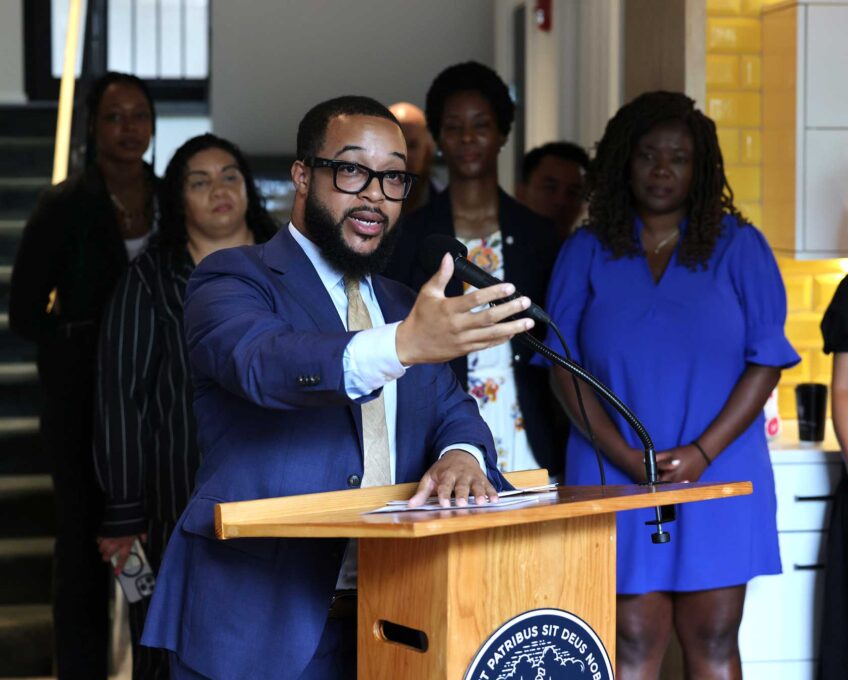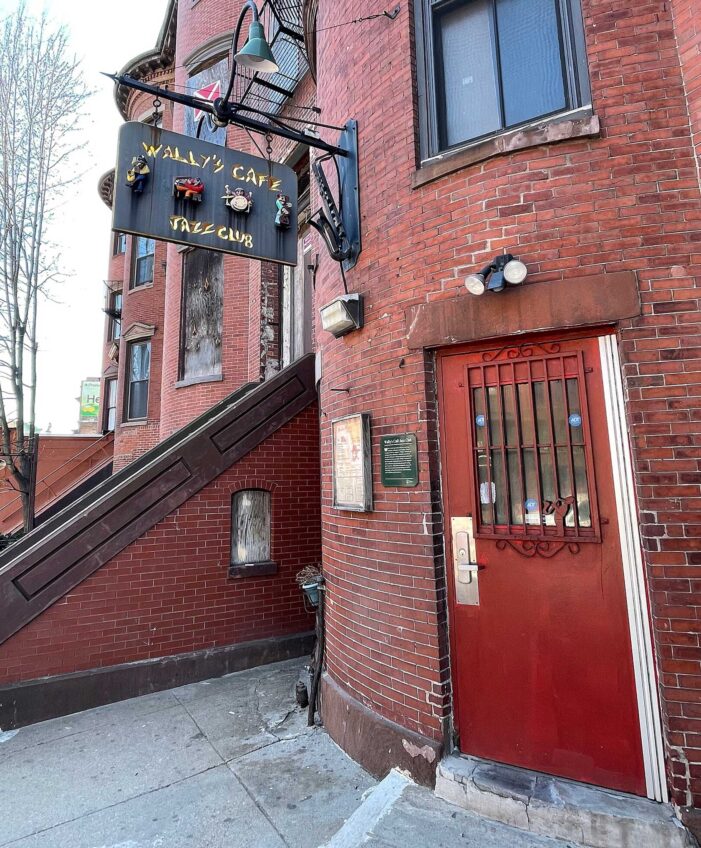
Ayanna Lott-Pollard took the reins of the nonprofit organization Resilient Coders from longtime leader David Delmar Sentíes in 2022. And the past two years were, to use her words, “a whirlwind.”
There was the aftermath of the killing of George Floyd in 2020 that brought attention to systemic inequality. There were the layoffs plaguing the tech industry. Then came the companies walking back from DEI commitments and, amid it all, a surprise gift from MacKenzie Scott’s charitable fund.
Resilient Coders gives a stipend to young adults from low-income communities to attend its coding classes and connects them to jobs as software engineers. The organization turned 10 years old last year, completing its first decade with nine people on its remote staff, two offices in the Boston area and Philadelphia, and 590 alumni.
Lott-Pollard recently sat down with the Business Journal’s Lucia Maffei to discuss the recent DEI backlash, the $2.5 million donation, and Resilient Coders’ expansion plans to Maine.
What has changed at Resilient Coders in the past two years?
It’s been a whirlwind. When I came to Resilient Coders, we were at the tail end of a movement, the Black Lives Matter movement, the inflection from people understanding the effect of George Floyd … We couldn’t place students fast enough. We couldn’t train them fast enough. We’ve had organizations calling us and saying, ‘Okay, when is your next graduation? I need to hire five people by January.’ … Those were good times. Those were the good old days.
Then we saw a decline. We saw the shift in the conversation. We saw folks say, ‘Hey, our strategic imperatives have changed. We’re not focusing on social justice anymore. We’re not focusing on economic empowerment.’
Companies like Walmart, Ford, and others are all walking back from a number of initiatives that were grouped as diversity, equity, and inclusion, or DEI. How is Resilient Coders approaching this shift?
We know who we help, we know who we’re here to serve, but in no way do we want to undermine their talent, their giftings, their contributions based on their race. One of the things that I’ve always been saying since I’ve been with RC is ‘Hire for brilliance, hire for folks who have a skill set to add value and be innovative in these workspaces.’ … We also want to just highlight the fact that they come from underrepresented, low-income [backgrounds], but they’re also extremely capable, also the best of the best.
What do you think was the main cause for the recent slowdown at Resilient Coders? Was it the DEI backlash, or the layoffs that have been a big part of the narrative in the tech industry in 2024?
I think it’s the layoffs.
One of the recent highlights for Resilient Coders was the $2.5 donation last year from Yield Giving, the charitable fund established by philanthropist MacKenzie Scott. How do you plan to use the capital?
This surprise gift was like, as my board chair would say, winning the lottery … We’ve been able to save, been able to hire three key people, but we’ve also been able to dream about the new programs that we want to start. We moved from just having the boot camp to an Ascend program where we’re up-skilling Black and brown [people] — or anyone who wants to attend our sessions — to increase their coding knowledge, to learn new languages, to learn AI, to be able to develop their career platform, to learn GitHub, to become entrepreneurs. So just moving the needle out of ‘Oh, we’re just a bootcamp that trains people’ to ‘We are a one-stop shop for folks who want to advance their careers in tech.’
What else is going on at Resilient Coders this year?
We’re going to go to Maine! We’ve been invited by an organization, the Maine Entrepreneur Resource Corps, or MERC … They said, ‘Hey, we need to partner with a reputable organization to train a group of students for software engineering opportunities.’ … We were able to obtain a grant to do a pilot for some students out of Maine, the same demographics. The grant is from the State of Maine to train these ten folks in this organization. MERC is going to assist with the placement.
What’s your No. 1 goal or priority for 2025?
Getting people hired and having conversations with like-minded CEOs and CTOs who are looking for an innovative workforce.
What’s your message to them?
“Hey, you need innovation. You need capable folks. You need people who have grit and are hungry and [have] the professional skills that will add value to your organization.”
Gary Higgins is a reporter for Boston Business Journal






